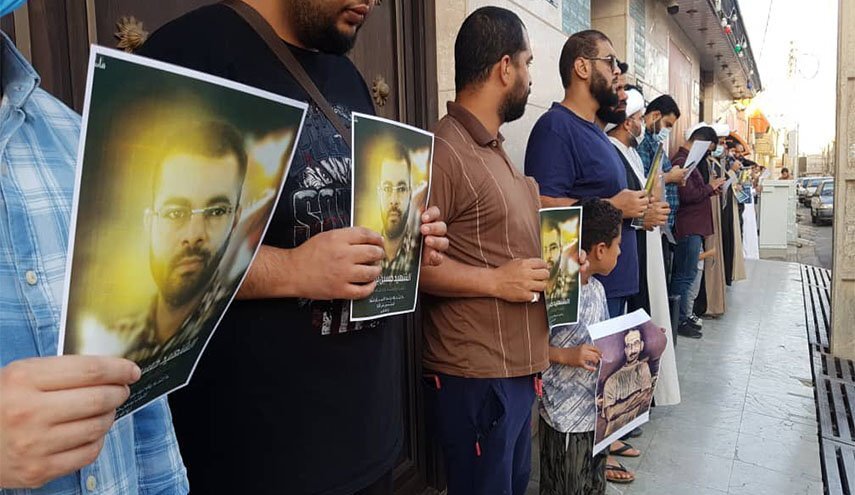Two members of the Dáil Éireann (the Irish lower house)–Violet-Anne Wynne TD and Paul Murphy TD–have tabled questions for the Minister for Foreign Affairs, Simon Coveney TD, in relation to what efforts Ireland have made to hold the Bahraini government accountable for its continuous human rights abuses in the region. The questions also inquired as to whether Minister Coveney’s attention had been drawn to the death of Husain Barakat, who died at Salmaniya Hospital on Wednesday, June 9, after contracting COVID-19.
Deputy Violet-Anne Wynne questioned the Minister for Foreign Affairs on his views regarding the operation of the EU Magnitsky Act, enacted in December 2020; and whether Ireland has implemented any of the powers of this legislation to date, for example, in relation to the Bahraini activist (details supplied) who recently died of COVID-19 in Jau Prison due to the lack of sanitation measures. Deputy Wynne also enquired as to whether the EU Magnitsky Act allows the EU and or Ireland to intervene in cases such as this, and if he will make a statement on the matter.
Deputy Paul Murphy asked the Minister for Foreign Affairs if his attention had been drawn to the death of a person (details supplied); and if he will raise this matter both with his EU colleagues, and at the United Nations.
In Minister Simon Coveney’s reply, he noted with concern the reports regarding an outbreak of COVID-19 in Bahrain’s Jau prison, and regarding the death of Mr. Husain Barakat. He claimed that “Ireland urges all States to safeguard the human rights of prisoners and detainees, including provision of healthcare services, as set out in the United Nations Standard Minimum Rules for the Treatment of Prisoners, also known as the Mandela Rules.” He further stated that “respect for human rights is an integral part of Ireland’s foreign policy, and we consistently seek to raise our concerns on human rights issues through the most appropriate and effective channels.” He continued his reply by asserting that Ireland has been raising the human rights issues in Bahrain at the UN Human Rights Council, and that they continue to engage on the issue of human rights in Bahrain through the European Union in other fora.
Minister Simon Coveney also stated that during the most recent EU-Bahrain human rights dialogue in February 2021, issues of concern were raised by the EU regarding the rule of law, prison conditions, right to a fair trial, freedom of expression, freedom of association, death penalty, torture and the impact of COVID-19 on the country’s human rights situation. With regards to the question on the EU Magnitsky Act sanctions, he replied that Ireland is a strong supporter of the EU’s new Global Human Rights Sanctions Regime, established in December 2020, and that the mechanism provides the EU with a concrete tool to target those responsible for serious human rights violations, wherever they may occur. This includes states who are not currently subject to a specific sanctions regime. To date, sanctions have been imposed on a broad list of individuals and entities involved in human rights abuses, drawn from six different jurisdictions: China, Russia, Eritrea, South Sudan, Libya and DPRK. He concluded his remarks by stating that “these designations send a strong message that the promotion and protection of human rights are a priority of EU external action. The EU is willing to act tangibly and directly to confront serious human rights violations, when other tools have not brought about the desired change of behaviour.”





